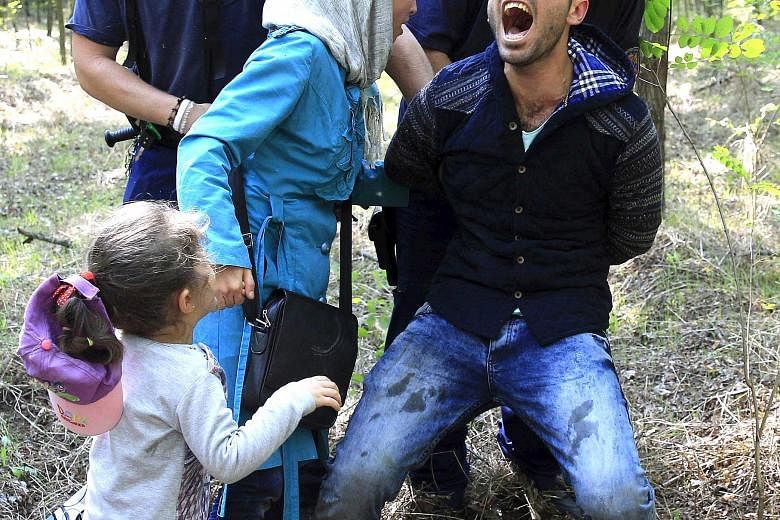BELGRADE • Twenty-six-year-old Hussein Raad worked in a fitness centre to make money for the trip to Europe, and it shows. He is muscular, with an elaborate tattoo on his bulging left bicep. He wears a T-shirt that says, in English: "Do it with passion or not at all."
Mr Raad is making this trip with passion. He was on the railroad tracks in Idomeni, Greece, waiting to cross the border into Macedonia. Unencumbered by family, he moved fast. An Iraqi from Baghdad, he had been planning and saving for this trip for two years.
The young men are in the best position to move fast and smart. They know how to use the essential technology toolkit for a 21st-century migrant - Viber, WhatsApp, cellphone. Mr Raad is particularly able, because he has a degree in computer science. The advantage of WhatsApp is that as long as the migrants have an Internet connection, they can communicate with friends and family back home and in other countries.
The train heading across Macedonia to the Serbian border is a battered old blue one with graffiti scrawled across it. The migrants stuff their backpacks into the overhead racks along with their sleeping bags and ground sheets. Families with children squeeze into the open space between cars. Men prop open windows with water bottles to relieve the sweltering heat. The babies fuss and cry.
Hundreds of migrants have massed on the Macedonian side of the Greek border, waiting for the train to the border with Serbia. There is no space left, and yet thousands continue to pour in.
At the Macedonian border, the news from Hungary - gathered through YouTube clips and word of mouth - is bad: Hungary is cracking down on refugees and migrants. The migrants here panic. What will they do when they reach Hungary? "Within four days, my friend, the police catch him and make him do fingerprints," says Mr Wadih Saloumy, 25. "If they take our fingerprints, we can't go to Germany or Sweden.
"I have an uncle in Sweden," he adds. The migrants could look for a smuggler, but that is risky too.
Last Thursday, 71 migrants, including four children, were found dead in the back compartment of a truck on the A4 highway that links Vienna and Budapest. All 71 likely suffocated.
NEW YORK TIMES

